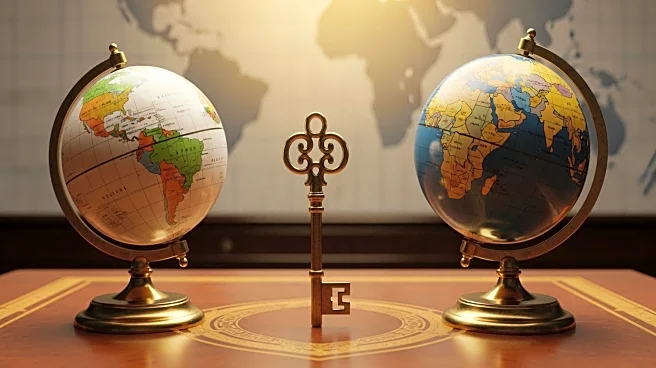What's Happening?
President Donald Trump has expressed openness to meeting North Korean leader Kim Jong Un during his Asia tour. Trump suggested that he would extend his trip to facilitate the meeting, should Kim agree.
This potential meeting would mark the fourth face-to-face encounter between the two leaders, following previous summits that have not resulted in substantial agreements on denuclearization. Trump’s approach to foreign policy, which emphasizes personal relationships over traditional diplomatic preparation, has led to unexpected diplomatic breakthroughs in the past.
Why It's Important?
The potential meeting between President Trump and Kim Jong Un is significant as it could impact regional stability in the Indo-Pacific, where North Korea and China pose substantial threats. While previous summits have not yielded concrete results, the possibility of engagement might help reduce tensions. However, North Korea's expanded nuclear arsenal and its strengthened ties with Russia and China present challenges. Recognizing North Korea as a nuclear nation could have far-reaching consequences, potentially prompting Japan and South Korea to consider acquiring nuclear weapons, thereby altering the security dynamics in the region.
What's Next?
If the meeting occurs, it could lead to discussions on adjusting sanctions against North Korea, which have been a point of contention in past negotiations. The outcome of such a meeting could influence U.S. foreign policy and its approach to North Korea's nuclear ambitions. Additionally, the meeting could affect Trump's diplomatic relations with other countries in the region, including South Korea and China, as he is scheduled to meet their leaders during the Asia-Pacific Economic Cooperation forum.
Beyond the Headlines
The broader implications of a meeting between Trump and Kim could include shifts in U.S. alliances and strategies in the Indo-Pacific region. The recognition of North Korea as a nuclear power might lead to increased nuclear proliferation concerns among U.S. allies, affecting global security policies. Furthermore, Trump's unconventional diplomatic style could redefine traditional summitry and influence future U.S. foreign policy approaches.










